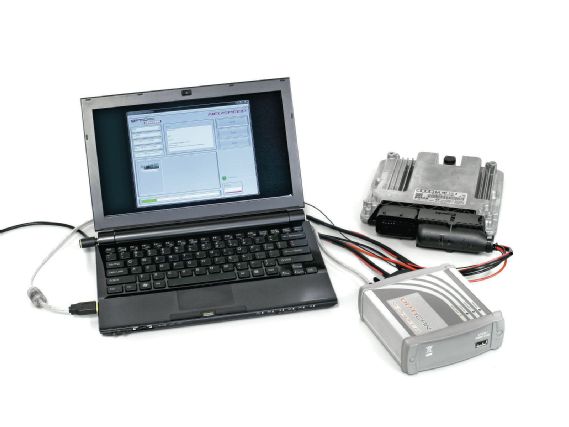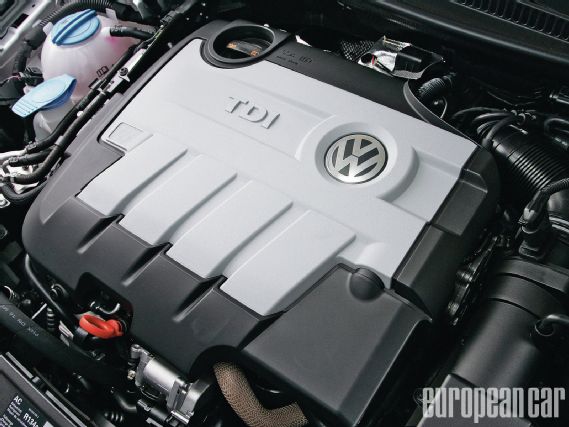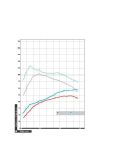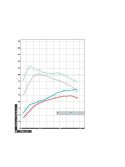Now that we are several years into the great clean diesel push, I was surveying the scant amount of diesels available in the current U.S. market. For all intents and purposes, it’s commendable that diesel engines are available in some model lines, however, I still envision a day when there is a diesel option throughout a model’s entire range. According to Volkswagen’s 2010 sales figures, the TDI models now account for 25 percent of the overall sales volume. This is a good start, but what is it really going to take to make diesels more mainstream? Perhaps breaking out of its squeaky clean image and showing that diesels can compete with and in some cases exceed the gasoline motors in power and performance.
 |
2011 Volkswagen Golf TDI - Proven
|
2011 Volkswagen Golf TDI - Proven
With this upcoming ec Proven series, we’re testing the Golf TDI’s ability to handle all the same mods that we would perform on a GTI 2.0T FSI to see if the clean diesel can become a lean, green tuning machine.
Volkswagen 2011 Golf TDI
Vehicle Data
Engine: 2.0-liter I4, turbocharged clean diesel with common rail direct injection
Transmission: Six-speed DSG automated manual
Drivetrain: front-wheel drive
Mileage: 2,348
Current modifications: None
Dyno Data
Dyno type: Clayton Mustang dynamometer
Temperature: 78F -81F
Transmission test gear: Third
Dyno set weight: 3,300 pounds
Performance
Temperature: 78F
Humidity: 22%
Peak power: 122 whp @ 4011 rpm
Peak torque: 205 lb-ft @ 2439 rpm
Test Notes
The baseline and all subsequent testing were performed on the same day, utilizing the same tank of ultra-low sulfur diesel (ULSD).
 |
2011 Volkswagen Golf TDI - Proven
|
2011 Volkswagen Golf TDI - Proven
All horsepower and torque numbers shown are taken at the wheels. It is also important to keep in mind that the properly calibrated Mustang dyno produces more accurate real-world horsepower and torque numbers. While these numbers might seem low when compared to those gathered from a Dynojet, what is important is the differences between each dyno run. These differences are what we use to verify the validity of the manufacturer’s horsepower and torque claims.
Neuspeed Power flash for edc17 clean diesel
Test 1
Performance
Peak power: 145 hp @ 4243 rpm
Peak torque: 233 lb-ft @ 1992 rpm
Max power gain: 31 hp @ 4349 rpm
Max torque gain: 63 lb-ft @ 1992 rpm
Temperature: 81F
Humidity: 24%
Install process: Bench flash
Installation time: 45 minutes
MSRP: $599
Pros
 |
2011 Volkswagen Golf TDI - Proven
|
2011 Volkswagen Golf TDI - Proven
- Completely reversible
- Retains all of the factory safety protocols for intake and exhaust temperatures
- Free lifetime upgrades and free re-flash back to stock program
- 100% compatible with all diagnostic software
- Torque maps have been recalibrated to ensure the extra power generated by the increased boost, and optimized injection timing and duration
- Retains all factory emissions standards
Cons
- Currently only available as a bench flash
Conclusion
For over 15 years I have let various tuners manipulate the ones and zeroes that control the engine’s performance characteristics on my car’s engines and each and every time I’m amazed at what they pull out of themas with this car, for example. The 2011 Golf TDI DSG is an amazing car from the factory with its smooth and somewhat lazy torque curve, quick and precise shifts from the DSG, a sport suspension and 17-inch wheels that offer decent handling while still giving good ride comfort. So why would you really want to mess with it? It’s my nature, and from past experiences, Volkswagen always leaves room for improvement with no negative effects on reliability or durability.
 |
2011 Volkswagen Golf TDI - Proven
|
2011 Volkswagen Golf TDI - Proven
The biggest accomplishment of the Neuspeed Power Flash was that it made me forget that I was driving a diesel at all. It gives the perfect combination of torque with a powerband reminiscent of a gas motor. I really can have my cake and eat it too.
An added benefit of the new power curve is how perfectly it syncs with the DSG, shifting right as the power begins to taper off versus the stock program where it shifts 500 rpm after the power dip. The power is everywhere from stoplight to stoplight, high-speed freeway runs, emergency passing power, and as an enthusiast I always want more power and torquethe Neuspeed Power Flash is the perfect place to start.
I had to log numerous miles to confirm the astounding results of the Neuspeed flash in this otherwise stock Golf. With over 1,000 miles logged since the flash, I have actually noticed an increase in the overall mpg, roughly 30 miles more per tank. I was surprised considering I haven’t been driving slow, and I’m permanently tweaking my girlfriend’s neck from accelerating off the line at every light.
The thing I like most about the Golf TDI is that I do not miss my GTI at all. It’s just as fun to drive and I get an average of 140 miles more per tank with a savings of $4 per fill-up. For those waiting for Volkswagen to bring us the 170-hp GTD, you can now create your very own at a fraction of the cost.



